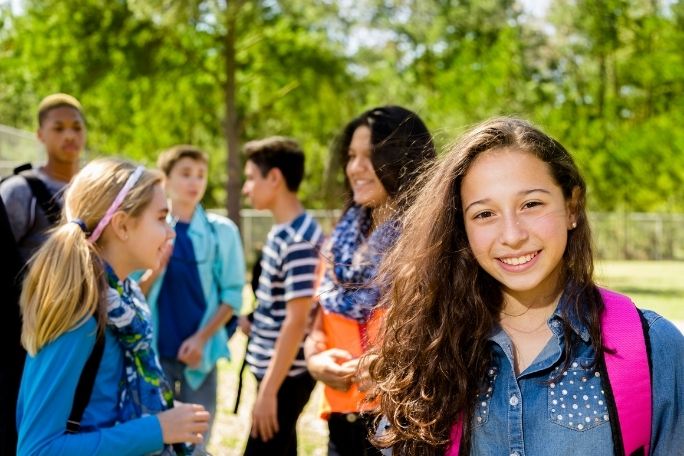Lesson summary
In this lesson, students will work in groups to identify a local plant or animal species, then brainstorm an idea to develop a project that aims to engage the community in researching and taking action for this species through citizen science. Next, they collaboratively plan their project and execute this plan. Finally, students are asked to reflect upon the success of their project and their role in creating and executing the project.
This can be completed as a standalone lesson, however, if you have completed any of the previous citizen science lessons, students will have the opportunity to synthesise what they have already learned when developing their plan to engage their community.
Learning intentions:
Students will...
- know how climate change might affect the biodiversity in their own community
- understand how to engage the local community in action for climate change and local biodiversity
- be able to drive the processes required for planning and executing a social action project
Success criteria:
Students can...
- investigate how climate change might affect biodiversity in their own community by choosing and researching a local key species
- engage their local community to take action for climate change and local biodiversity using citizen science
- plan and execute a social action project
Lesson guides and printables
Lesson details
Curriculum mapping
Australian curriculum content descriptions:
Year 7 Science:
- Science knowledge can develop through collaboration across the disciplines of science and the contributions of people from a range of cultures (ACSHE223)
- Communicate ideas, findings and evidence based solutions to problems using scientific language, and representations, using digital technologies as appropriate (ACSIS133)
Year 8 Science:
- Science knowledge can develop through collaboration across the disciplines of science and the contributions of people from a range of cultures (ACSHE226)
- Communicate ideas, findings and evidence based solutions to problems using scientific language, and representations, using digital technologies as appropriate (ACSIS148)
Syllabus outcomes: SC4-9WS, SC4-17CW.
General capabilities: Critical and creative thinking.
Cross-curriculum priority: Sustainability OI.6, OI.7, OI.8, OI.9.
Relevant parts of Year 7 Science achievement standards: Students describe situations where scientific knowledge from different science disciplines and diverse cultures has been used to solve a real-world problem. Students will communicate their ideas, methods and findings using scientific language and appropriate representations.
Relevant parts of Year 8 Science achievement standards: Students describe situations in which scientists collaborated to generate solutions to contemporary problems. Students use appropriate language and representations to communicate science ideas and findings in a range of text types.
Unit of work: ClimateWatch: Citizen Science – Science – Years 7 & 8.
Time needed: 150+ mins (plus time for students to complete action projects).
Level of teacher scaffolding: Medium – oversee discussion, lead students in activities.
Resources required
- Student Worksheet – 1 copy per student
- 1 copy of the Social Action Question
- Enough copies of the Social Action Quotes sheet for each group of 3-4 students to get 1 quote each
- 1 printed copy of Project Planning Tool for each group
- Project Checklist
- Butcher’s paper and marker pens
- Online stopwatch
Skills
This lesson is designed to build students’ competencies in the following skills:
- Collaboration
- Communication
- Community Engagement
- Creativity
- Critical thinking
- Global Citizenship
Additional info
This lesson has been developed in partnership with Earthwatch. Earthwatch developed the ClimateWatch program with the Bureau of Meteorology and The University of Melbourne to understand how changes in temperature and rainfall are affecting the seasonal behaviour of Australia’s plants and animals.


Welcome back!
Don't have an account yet?
Log in with:
By signing up to Cool.org you consent and agree to Cool's privacy policy to
store, manage and process your personal information. To read more, please see
our privacy policy here(Opens in new tab).
Create your free Cool.org account.
Many of our resources are free, with an option to upgrade to Cool+ for premium content.
Already have an account?
Sign up with:
By signing up to Cool.org you consent and agree to Cool's privacy policy to
store, manage and process your personal information. To read more, please see
our privacy policy here(Opens in new tab).